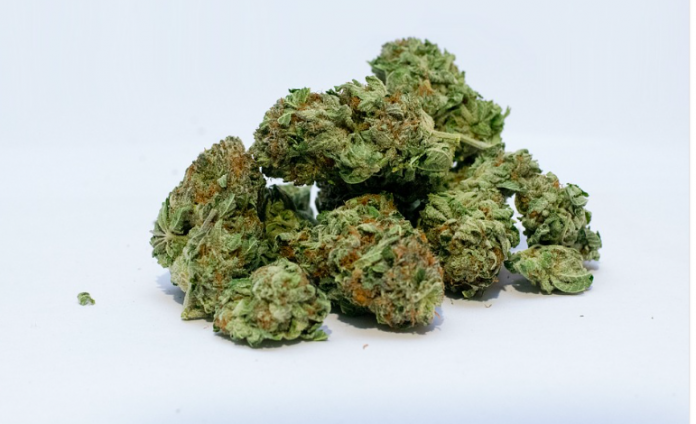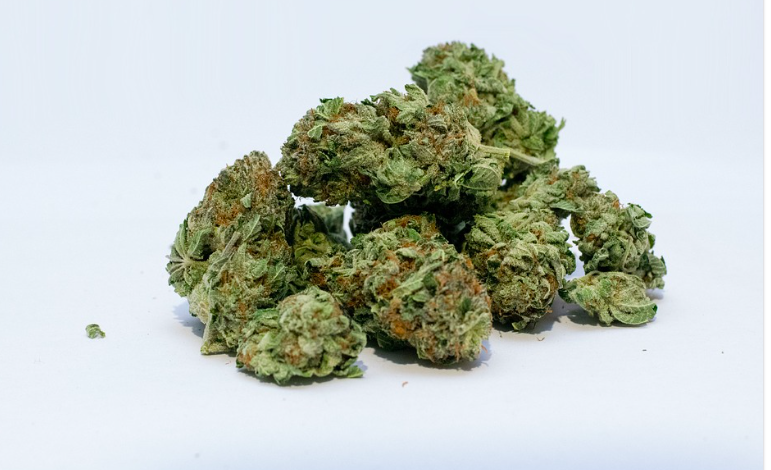
It feels as if in the last few months, the dominant narrative at City Hall has been that cannabis small business are somehow innately harmful to our communities.
When we say that there can be no small cannabis business around schools and when we talk about excluding whole neighborhoods from the new cannabis industry we are sending a message that just doesn’t align with fact, science and the personal experience of every politician in City Hall: We are saying that somehow that the very existence of these business near schools is harmful, while somehow bars are not.

San Francisco is proud of its nightlife industry. It’s been my honor to stand with many of my colleagues as an ally to nightlife and work to pass legislation that preserves and supports are historic bars, nightclubs, and music venues.
Let me say this: if City Hall had been this short sighted in the 1930s when alcohol prohibition ended, and had passed the same sort of restrictions on bars and venues that we are considering for cannabis today — San Francisco would have been changed for the worse.
We would have missed out on the swings clubs of the forties, the Fillmore Jazz clubs of the 50’s, the Summer of Love wouldn’t have happened, and neither would the gay rights movement that was born in the bars of the Castro.
Cannabis has the potential to be a powerful force for good in our city. We are looking at a brand new blue-collar industry that people who actually live in San Francisco can be part of. Unlike the tech industry — which at times this board has rushed to do everything it can to support – this industry has a low barrier to entry. Anyone with a dream, savings, and a smart business plan can open up a cannabis business and make a living – a good living.
Watching the success of the new cannabis industry in Washington and Colorado has been really exciting: Small business, tourism, and the most important part “taxes” has resulted in huge benefits for local communities.
But unfortunately, San Francisco’s City Hall seem to be focused on saying no rather than finding ways to say yes.
I want to say thank you to my colleagues Supervisor Malia Cohen and Supervisor Sandra Lee Fewer for their work on cannabis equity. I truly appreciate their focus on how cannabis can benefit our marginalized communities.
I think that as we move forward to decide what the future of cannabis is going to be in our city that we also need to look back on the long history of cannabis here in San Francisco.
Here’s the reality. San Francisco has always had cannabis. It came here with the sailors and gold-miners who founded our town, and has never left. In the 1860’s when Mark Twain moved to San Francisco it was legally being sold and advertised in our local newspapers.
It wasn’t until 1915 that America began its crack down on cannabis, and like all parts of the Drug War it was deeply rooted in racism.
Racist policy forces near the border began referring to cannabis by its Spanish name “marijuana” and claiming that Mexican’s were crossing the board high on cannabis imbued with Superhuman strength. Here’s a real quote from a Texas Police Captain.
“Under marijuana Mexicans become very violent, especially when they become angry and will attack an officer even if a gun is drawn on him. They seem to have no fear. I have also noted that under the influence of this weed they have enormous strength and it will take several men to handle one man while, under ordinary circumstances, one man could handle him with ease.”
They’re talking about stoned people here.
It’s funny until you realize the devastation this racism has had on the Latino Community which I have the honor of representing. Here’s a quote from the first director of the Federal Bureau of Narcotics Harry Anslinger:
“There are 100,000 total marijuana smokers in the U.S., and most are Negroes, Hispanics, Filipinos and entertainers. Their Satanic music, jazz and swing result from marijuana use. This marijuana causes white women to seek sexual relations with Negroes, entertainers and any others. Reefer makes darkies think they’re as good as white men.”
That chills me to the bone. This right here is the beginning of the war on drugs. And here’s what the racist, hateful, policies that came from this type of disgusting think resulted in.
- America has less than 5% of the world’s population but nearly 25% of its incarcerated population. We imprison more people than any other nation in the world – largely due to the war on drugs.
- People of color arrested for drug law violations experience discrimination at every stage of the judicial system and are more likely to be stopped, searched, arrested, convicted, harshly sentenced and saddled with a lifelong criminal record. Among people who received a mandatory minimum sentence in recent years 38% were Latino and 31% were black.
- This type of racism is causing mass deportations. The drug war has increasingly become a war against migrant communities fueling racial profiling, border militarization, violence against immigrants, and intrusive government surveillance. More than 40,000 people are deported from the U.S. every year for drug law violations.
And that’s just the Latino community. Black, Chinese, Filipino and LGBT communities have all suffered under our non-fact based, non-science-based, racist drug war history.
What I want to focus on in the next few weeks as the Board of Supervisors decides the future of Cannabis is how we can make reparations for the terrible treatment of minority communities during the drug wars.
This is our opportunity to make sure that the benefit of the cannabis industry will be intentionally directed to the communities that suffered from the cannabis drug war. I want to make sure that we’re practicing cannabis affirmative action and giving these community’s a leg up in this industry. I look forward to continuing this debate.
Sup. Hillary Ronen represents District 9.

yup! I’m glad you ready between the lines Tony!
sounds like you are in favor of shutting down liquor stores…
false, refer madness documented wacky tobacco effects years ago. It is the main reference point we have to the dangers of the devils tobacco! !!!! !!!
Interesting that Chinese in the Sunset are strongly opposed to pot. I wonder if it has anything to do with the opium problem China once had.
There is an epidemic of oxycontin addiction and deaths related to oxycontin and fentanyl are destroying whole communities in some small towns in the US. Granted marijuana and opioids target different areas in the brain, and are not interchangeable chemical substances, but any type of promotion of mind altering drugs is a hard sell for public health reasons. No one wants to take the blame of promoting drug usage in this environment.
And realistically how many marijuana outlets do you really need?
Comparing pot to liquor isn’t truly applicable – its like comparing apples and oranges. There really isn’t a comparable substance to marijuana for such a comparison. Nor is pot risk free.
where’s the pizza?
4.- can’t operate an oven.. tsk tsk tsk
you missed 4. baby put in the oven.
wut
Agree. Thank you Hillary! Alcohol has caused more harm since the dawn of time there’s no way any other substance could catch up with its track record. DUI’s, Drunk in Public, Addicts, Deaths, Toxic death by over consumption, violence with and without guns. etc. etc etc. – can someone give the receipts that support everyone’s fear/stigma of marijuana –
cannabis is a danger to many people.
1.-ghostship fire and the lack of critical thinking skills.. art and cannabis…..horrible….
2.-pedestrian deaths, people that use cannabis cannot distinguish between a red light and green light
3.-http://www.denverpost.com/2017/08/25/colorado-marijuana-traffic-fatalities/
cannabis may have health benefits as a pain killer ,but in the long run you become stupid .. its pretty sad.
Supposedly, legalized weed for all should eliminate that scenario. But I guess the street dealers will have to seriously undercut their prices if they want to compete with the legal shops. Isn’t that what legalization is all about — eliminating the illegal sales, regulating/taxing the legal sales?
Of course, if the legal sale prices are too high due to added taxes/fees/overhead costs, then it’s kind of a no-brainer that users will buy product illegally.
I don’t mind the dispensaries or the clientele. What scares me is the street dealer nearby that is trying to intimidate customers into buying his version of the product. I’ve seen that go south pretty quickly a few times.
No, he’s pointing out that he isn’t anti-weed, but may have issues with the business side of legalized weed.
How did you not catch that point? Weed is a product, a consumer product, not a person. That you equate weed with human beings is…bizarre.
Oh, look, this must be Geek__Girl under another name — if we don’t all think opening up a weed store on every corner is a good idea, we must hate all Mexicans…bitterly!
“I am a pot smoker” “I have gay friends” “My cousin is a negro” “I am a legitimate person” LOL
This is pathetic. I am a pot smoker, but to insinuate that anyone who opposes adding hundreds of more pot shops is racist is beneath you. Ms Ronen, the people of San Francisco deserve better.
BTW – you can get pot delivered to your house – with Pizza! Now!